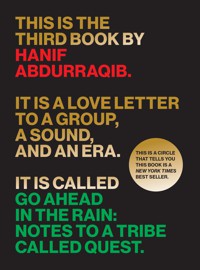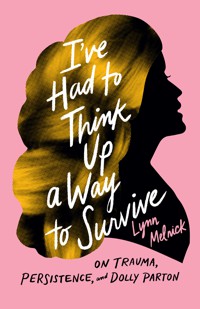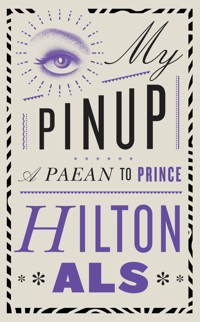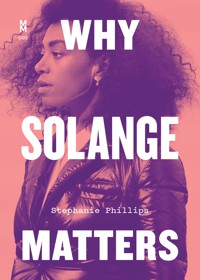
Music, of all art forms, is uniquely tied up with memory. It’s stitched into the fabric of daily life: Think about the mixtape you made for your first crush, the pop star whose posters were plastered in your teenage bedroom, the album that got you through your divorce, the jam band whose tour you followed across the country. All provide tantalizing insights into your past—and present—selves.
It’s no wonder, then, that the best music writing gets personal. The writer can turn herself into a prism, refracting her subject, allowing us to see its components. Why does this song move me? she asks. Why does this band matter to me? And most important: Why should we care? The ability to answer this last question can distinguish a good critic from a great one.
In her 1995 essay “Music Criticism and Musical Meaning,” the musician and philosopher Patricia Herzog wrote, “For interpretation to carry conviction, it must be based on intense appreciation—indeed, on love.” These six books masterfully explore what the songs we cherish (and, in one illuminating case, hate) reveal about us.

Go Ahead in the Rain: Notes to A Tribe Called Quest, by Hanif Abdurraqib
Abdurraqib’s music writing proves that criticism and memoir are inextricable. His essay collections, A Little Devil in America and They Can’t Kill Us Until They Kill Us, look as intimately at the output of artists including Aretha Franklin, ScHoolboy Q, Don Shirley, and Carly Rae Jepsen as they do at the author himself. Go Ahead in the Rain, his homage to the trailblazing hip-hop group A Tribe Called Quest, is another shining example of this signature approach. As a “decidedly weird” teenager at the turn of the ’90s, forever plugged into his Walkman, Abdurraqib fell in love with the group—especially founding member Phife Dawg—because he sensed that “they, too, were walking a thin line of weirdness.” Even at his most introspective, Abdurraqib embraces nostalgia without succumbing to it, and honors the experience of fandom while interrogating it. The book is ultimately an elegy: A Tribe Called Quest broke up in 1998, and Phife Dawg died in 2016, just after the band reunited to record its first new album in 18 years. “A group like A Tribe Called Quest will never exist again,” Abdurraqib writes. With Go Ahead in the Rain, he manages to both celebrate their achievements and “lay them to rest.”
[Read: Phife Dawg’s walk on the wild side]
Let’s Talk About Love: A Journey to the End of Taste, by Carl Wilson
At the outset of this pivotal entry in Bloomsbury’s 33 ⅓ series of books (each focusing on a single record), Wilson—a critic and fairly omnivorous lover of music—professes his hatred for the Quebecoise pop diva Céline Dion. The book, he says, is an “experiment” intended to answer questions about taste, fandom, and popularity using Dion’s 1997 album Let’s Talk About Love as a case study. Wilson tries to uncover the reasons for the power-balladeer’s remarkable popularity, mining philosophy, sociology, history, and his own Canadian roots. He talks with diehard Dion fans and even attends a show of her Las Vegas residency, a “multimedia extravaganza” that surprisingly “coaxed a few tears” out of the freshly divorced author. Dion’s allure proves to be more complicated than expected, and his lines of inquiry lead him, by the book’s end, to examine the very purpose of music criticism itself. Wilson doesn’t exactly come out on the other side a Dion convert, but he acknowledges her widespread appeal to be not just valid, but valuable. “There are so many ways of loving music,” he concludes.

Nina Simone’s Gum, by Warren Ellis
In 1999, the Australian musician Warren Ellis attended a performance by Nina Simone. After the show, he snuck onstage and swiped a piece of chewed gum that Simone had stuck to the bottom of her Steinway. Twenty-two years later, Ellis’s obsession with this bit of refuse spawned this mixed-media memoir, which interweaves text and images to exalt the everyday objects and experiences that represent “the metaphysical made physical.” In it, he recounts how he took Simone’s gum with him on tour, wrapped in the towel she’d used to wipe her brow during the concert—a “portable shrine”—before storing it in his attic for safekeeping and, finally, making a cast of it for posterity. He describes the concert with pious zeal—it was “a miracle,” “a communion,” a “religious experience.” He’s self-aware enough to know his devotion is odd, but not self-conscious enough to let that stifle the joy it brings him. In a screenshotted, reproduced text exchange from 2019 with his friend and frequent collaborator Nick Cave, Ellis reveals that he kept the gum. “You worry me sometimes,” Cave replies. “Haha,” Warren writes back. “I guess I do.”

I’ve Had to Think Up a Way to Survive: On Trauma, Persistence, and Dolly Parton, by Lynn Melnick
During what she calls “the worst year of my adult life,” Melnick, a poet, went to Dollywood, the country icon Dolly Parton’s Tennessee theme park. Part retreat, part pilgrimage, her trip moved her to write I’ve Had to Think Up a Way to Survive, a memoir that puts her harrowing story into conversation with Parton’s biography—and discography. Across 21 chapters, each cleverly pegged to a different song (the book’s structure alone makes it worth picking up), Melnick, a self-professed “diehard Dolly fan,” recounts a life marred by drug addiction, domestic violence, and sexual abuse. Along the way, she looks to Parton as a model of resilience, gleaning lessons from her nearly six-decade career and interviews. She also unspools the tensions in Parton’s hyperfeminine persona, which leads to a broader consideration of women’s self-fashioning. The author writes with remarkable vulnerability and candor yet ensures that the often-painful memories she relates don’t cloud her critical gaze. She moves gracefully between confessional and analytical registers, her prose both sharp and full of heart.

My Pinup, by Hilton Als
Als’s ambivalence toward Prince’s mutable persona propels this slim memoir about aura, authorship, and authenticity. As a young man at the turn of the ’80s, Als admired how the singer-songwriter embodied Black queerness with his bombastic androgyny and genre-bending virtuosity, and he was awed by the way Prince flouted the rules of race, gender, and sexuality to “remake black music in his own image.” So he experienced a sense of betrayal when, for albums such as 1999 and Purple Rain, Prince took to tailored suits and poppy hooks. “He was like a bride who had left me at the altar of difference to embrace the expected,” Als writes. “Could my queer heart ever let any of this go, and forgive him?” The parasocial relationship Als has with Prince is a rich site for study, on both a personal level (What does it mean to feel hurt by someone you don’t know?) and a political one (What does it mean to endow one person with so much representational power?). That parasociality is finally shattered when Als is sent to interview his idol during Prince’s 2004 Musicology tour. Here, the book’s knotty, conflicted emotions come to a head. During their interview, on a whim, Prince asks Als to write a book with him; Als demurs. “I could not look at Prince,” he writes. “Nor could I look away.”

Why Solange Matters, by Stephanie Phillips
In this installment of University of Texas Press’s Music Matters series, Phillips makes a convincing case for the singer-songwriter Solange as one of our most important and ambitious chroniclers of Black womanhood. Phillips, a musician who plays in the Black-feminist punk band Big Joanie, draws amply from her own experience navigating mostly white musical spaces to trace Solange’s fraught history with—and radical defiance of—the music industry. Phillips is from England and the daughter of Jamaican immigrants, which helps her illustrate Solange’s impact beyond America for women across the Black diaspora. Phillips’s analysis, for instance, of When I Get Home, Solange’s full-length ode to her hometown of Houston, shows how the artist both leverages and transcends cultural specificity. But she has a particular reverence for Solange’s “zeitgeist-shifting” third album, A Seat at the Table, which, Phillips says, “felt like it was written specifically for me” when she first heard it. From across the Atlantic, she writes, Solange “gave me space to learn to love … my Black girl weirdo self.”
When you buy a book using a link on this page, we receive a commission. Thank you for supporting The Atlantic.







